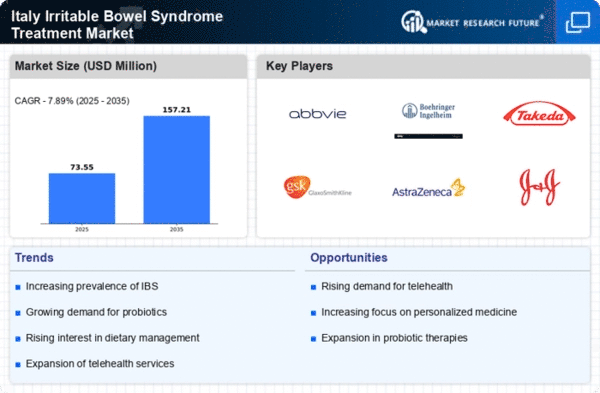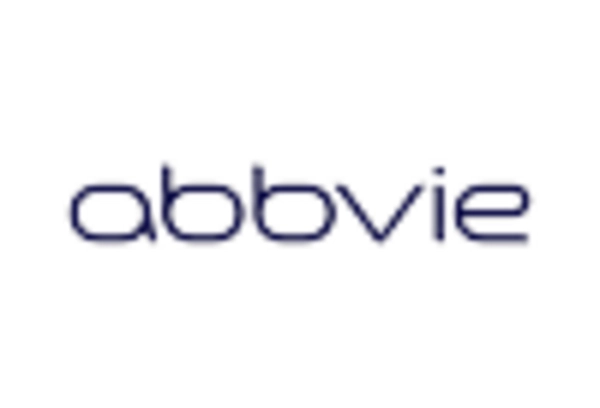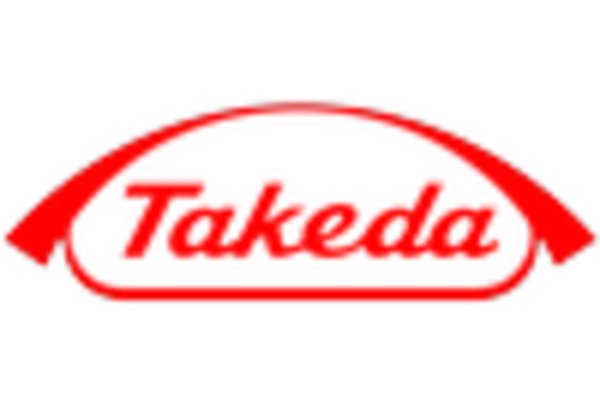Rising Incidence of IBS
The increasing incidence of irritable bowel syndrome in Italy is a notable driver for the irritable bowel-syndrome-treatment market. Recent studies suggest that the prevalence of IBS is on the rise, with estimates indicating that around 15% of the Italian population may be affected. Factors contributing to this trend include dietary changes, stress, and lifestyle factors. As more individuals are diagnosed with IBS, the demand for effective treatment options is likely to escalate. This growing patient population may prompt healthcare providers to enhance their offerings, leading to a more competitive market environment. Consequently, the rising incidence of IBS is expected to significantly impact the treatment landscape in Italy.
Growing Awareness of IBS
The rising awareness of irritable bowel syndrome (IBS) among the Italian population is a crucial driver for the irritable bowel-syndrome-treatment market. Educational campaigns and healthcare initiatives have contributed to increased recognition of IBS symptoms, leading to more individuals seeking medical advice. As awareness grows, it is estimated that approximately 10-15% of the population may experience IBS, which translates to millions of potential patients. This heightened awareness encourages healthcare providers to offer more comprehensive treatment options, thereby expanding the market. Furthermore, the Italian healthcare system is adapting to these changes by integrating IBS management into primary care, which may enhance patient access to necessary treatments and support services.
Increased Healthcare Expenditure
The rising healthcare expenditure in Italy is a significant driver for the irritable bowel-syndrome-treatment market. As the government allocates more funds to healthcare, patients are likely to have better access to diagnostic and treatment services for IBS. In 2025, healthcare spending in Italy is projected to reach approximately €200 billion, reflecting a commitment to improving health services. This increase in funding may facilitate the development of specialized IBS clinics and enhance the availability of treatment options. Moreover, as more patients seek treatment, healthcare providers may be incentivized to offer innovative solutions, further stimulating market growth. The correlation between healthcare expenditure and treatment accessibility is expected to play a pivotal role in shaping the market landscape.
Advancements in Treatment Options
Innovations in treatment modalities are significantly influencing the irritable bowel-syndrome-treatment market. Recent developments in pharmacological therapies, including new medications targeting specific IBS symptoms, have emerged. For instance, the introduction of medications such as rifaximin and eluxadoline has provided patients with more effective options. Additionally, the market is witnessing a surge in the availability of probiotics and dietary supplements aimed at alleviating IBS symptoms. The Italian pharmaceutical industry is actively investing in research and development, which may lead to the introduction of novel therapies. This continuous evolution in treatment options is likely to attract more patients, thereby expanding the market and improving overall patient outcomes.
Integration of Telehealth Services
The integration of telehealth services into the healthcare system is emerging as a vital driver for the irritable bowel-syndrome-treatment market. Telehealth offers patients convenient access to healthcare professionals, particularly for those managing chronic conditions like IBS. In Italy, the adoption of telemedicine has accelerated, allowing patients to receive consultations and follow-up care remotely. This shift may enhance patient engagement and adherence to treatment plans, ultimately improving health outcomes. Furthermore, telehealth can facilitate access to specialized IBS care, particularly in rural areas where healthcare resources may be limited. As telehealth continues to evolve, it is likely to play a crucial role in shaping the future of the irritable bowel-syndrome-treatment market.

















